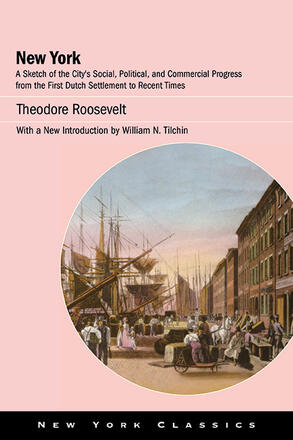
New York
A Sketch of the City’s Social, Political, and Commercial Progress from the First Dutch Settlement to Recent Times
Alternative formats available from:
A classic work on the history of New York City written by one of America's greatest politicians.
Description
Theodore Roosevelt's New York, published in 1891, was one of forty titles he authored during his lifetime. Roosevelt sets out, as he declares in his preface, "to trace the causes which gradually changed a little Dutch trading-hamlet into a huge American city." New York admirably accomplishes this objective. Proceeding chronologically, Roosevelt maintains control of his concise narrative throughout, recounting events clearly while continually providing well-considered and enlightening analysis. In suitable places—without disrupting the narrative—Roosevelt offers the reader his perspectives on a variety of broader topics, including his admiration for leaders who combine boldness with wisdom and moderation and his perceptive outlook on the frequent lack of connection between wealth accumulation and good character and meaningful living. While Roosevelt's own time as an exemplary top-level "man in the arena" was still years away, in this revealing and engaging book about his native city by a historian then in his early thirties, there are glimpses of the mindset and temperament of the world-historical leader who was to preside over the government of the United States from 1901 to 1909—yet another reason why Roosevelt's classic book New York remains well worth reading.
William N. Tilchin was a full-time history professor at Boston University from 1994 to 2020. He is the author of Theodore Roosevelt and the British Empire: A Study in Presidential Statecraft. He is also the editor of the Theodore Roosevelt Association Journal.